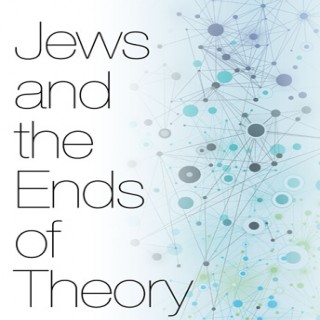Podcasts about seyla benhabib
- 20PODCASTS
- 21EPISODES
- 1h 2mAVG DURATION
- 1MONTHLY NEW EPISODE
- Nov 27, 2025LATEST
POPULARITY
Latest news about seyla benhabib
- Not in our name Corey Robin - Mar 18, 2025
- Seyla Benhabib and Ayelet Shahar (eds.), Lawless Zones, Rightless Subjects: Migration, Asylum and Shifting Borders – Cambridge University Press, January 2025 (print and open access) Progressive Geographies - Mar 7, 2025
- Against False Universals 3 Quarks Daily - Oct 20, 2024
- Attacks on German Campus Protests Fuel Authoritarian Turn Jacobin - May 21, 2024
- Frank Bongiorno's political history of Australia is a grand synthesis, but takes a narrow view of its subject English – The Conversation - Nov 15, 2022
Latest podcast episodes about seyla benhabib
Presentación del libro Conversaciones Urgentes. Doce pensadoras para un presente crítico
(Icaria, 2025). Con Rita Segato, autora; María Eugenia R. Palop, jurista y autora. En este libro, María Eugenia R. Palop conversa con doce pensadoras clave del pensamiento feminista contemporáneo. Son entrevistas profundas, vivas, que atraviesan los temas más urgentes de nuestro tiempo: las violencias patriarcales, la crisis ecosocial, el trabajo de los cuidados, las migraciones, la justicia feminista, el amor, la identidad, la esperanza. Rita Segato, Silvia Federici, Seyla Benhabib, Rosi Braidotti, Eva Illouz, Maristella Svampa, Alda Facio, Patricia Hill Collins, Alessandra Facchi, Yayo Herrero, Kajsa Ekis Ekman y Morena Herrera comparten aquí sus ideas, sus experiencias y sus apuestas políticas, en un cruce de saberes que rehúye el dogma y apuesta por el diálogo.
Rita Segato estuvo en Barcelona de la mano de editorial Icaria para presentar junto María Eugenia R. Palop, el libro: Conversaciones urgentes. Doce pensadoras para un presente crítico, donde la docente e investigadora indaga en las mujeres indispensables de este tiempo: Rita Segato, Silvia Federici, Seyla Benhabib, Rosi Braidotti, Eva Illouz, Maristella Svampa, Alda Facio, Patricia Hill Collins, Alessandra Facchi, Yayo Herrero, Kajsa Ekis Ekman y Morena Herrera ¿Qué tienen en común una filósofa posthumana, una jurista feminista, una teórica de las emociones, una activista contra el extractivismo o una socióloga pionera en el feminismo interseccional y antirracista?¿Qué tienen en común una filósofa posthumana, una jurista feminista, una teórica de las emociones, una activista contra el extractivismo o una socióloga pionera en el feminismo interseccional y antirracista?“No quiero ser ms humana”, dice Rita Segato y la necesidad de repensar el mundo desde la justicia, la vida y los cuidados.Séptima temporada. Seguimos en pie por las tardes. Desde El Prat Radio en directo martes de 15 a 16h en 91.6. Y también en Radio Universidad en Argentina 103.3. Los Domingos de 19 a 20h. Con Javiera Tapia Torra y Flor Coll
Die Philosophin Seyla Benhabib erhielt den Theodor W. Adorno-Preis in Ff/M.
Fittkau, Ludger www.deutschlandfunk.de, Kultur heute
#23.4 – Noch immer keine Gleichheit! Blinde Flecken sozialer Gerechtigkeit | 2-Jahresreihe Politikphilosophie
Falls euch cogitamus gefällt, lasst bitte ein Abo da und/oder empfehlt uns weiter. Abonnieren könnt ihr uns auch auf YouTube: https://www.youtube.com/@cogitamus Unterstützen könnt ihr uns ebenfalls: paypal.me/cogitamus oder cogitamus@posteo.de. Schaut auch mal auf UNCUT vorbei: https://www.uncut.at/. Zurück aus der SOMMERPAUSE und es geht endlich weiter mit unserer Zwei-Jahresreihe zur politischen Philosophie. Aufgrund der komplexen, vielschichtigen Themen werden wir die Jahresreihe auf zwei Jahre ausweiten. Nach der ökonomischen und klimatischen Gerechtigkeit widmen wir uns der sozialen Gerechtigkeit. Wieso gibt es trotz 200 Jahren Menschenrechten keine Gleichheit? Wieso funktioniert der vielbeachtete Gleichheitsansatz von John Rawls nicht? Inwiefern spielt die Kritik von Carol Gilligan an Kohlbergs Moralentwicklung eine Rolle? Welchen Einfluss hat die Trennung von Privatheit und Öffentlichkeit? Was sagt Seyla Benhabib dazu? Wo erkennt sie die blinden Flecken? Nächste Folge der Reihe Politikphilosophie: Kampf gegen Ungerechtigkeiten, Gewerkschaften & Menschenrechte Nächste Spezialfolge Philosophiegeschichte: Denis Diderot und die Enzyklopädisten Timemarker 00:00 Intro: Unabhängigkeitserklärung, Einordnung, Ablauf, Rückblick 08:43 Rawls Theory of Justice 23:47 Blinde Flecken 01:03:11 Lösungsansätze 01:15:25 Takeaways, Abschlusszitat, Outro Literatur/Links/Quellen Vorlesungen Uni Wien John Rawls – A Theory of Justice Martha Nussbaum - Die Grenzen der Gerechtigkeit. Suhrkamp Verlag, 2014. Martha Nussbaum – Langfristige Fürsorge und soziale Gerechtigkeit Seyla Benhabib - Der verallgemeinerte und der konkrete Andere, in: Selbst im Kontext Lisa Herzog – Politische Philosophie Bildnachweise: https://www.philomag.de/sites/default/files/styles/header_no_full_width/public/images/210128_benhabib-werkgesprach_bild-malte-jager.jpg?itok=Jq24cNMO; https://www.actionsa.org.za/wp-content/uploads/2020/09/3-Social-Justice.png; https://static.vecteezy.com/system/resources/previews/000/548/222/original/equality-vector.jpg
Podcast for Social Research, Episode 67: What is Critical Theory?
In episode 67 of the Podcast for Social Research, a live recording of the opening panel of two-day symposium Frankfurt School and the Now, BISR's Ajay Singh Chaudhary and Rebecca Ariel Porte and guests Seyla Benhabib and Aaron Benanav answer the perennial question, What is Critical Theory? As they trace a line from Kant to Marx to the classic and latter-day Frankfurt School critical theorists, they grapple with a wide range of attending questions: How can we understand the concept of critique itself? How does philosophy relate to social theory? What are we to make of critical theory's fraught history as a practice of negativity (the source of many of its most piercing insights and also of its perceived troubles for praxis)? Must criticism provide a solution? Or is the critique of “progress” as urgent as ever? In the 21st century, what remains of critical theory—and what doesn't?
Human Dignity, Democracy, and Borders: What We Owe Refugees
The Jepson Leadership Forum presents author and Columbia Law School professor Seyla Benhabib for a discussion on "Human Dignity, Democracy, and Borders: What We Owe Refugees." The 2021-22 Jepson Leadership Forum, "Moving People: The Perils and Promise of Nationalism," invites scholars, activists, and experts to discuss the moral, ethical, and legal implications of global migration and asylum, and explores how leaders and communities navigate the economic, social, and cultural transformations of a world with – and without – borders and walls. March 24, 2022
Jorge Fontevecchia entrevista a Seyla Benhabib - Abril 2022
Jorge Fontevecchia en entrevista con la filósofa estadounidense
Segundo episodio en el que nos acompaña Carmen Castillo (La Pame) desde Mérida para hablar de tendencias, del valor intangible en los textiles, el ecoturismo, las marcas de lujo y otras tantas. Más referencias: Retóricas de la autenticidad en el capitalismo avanzado, Joan Frigolé: http://revistas.uned.es/index.php/endoxa/article/view/13564 Las reivindicaciones de la lectura, Seyla Benhabib: https://seminarioshannaharendt.files.wordpress.com/2017/08/las-reivindicaciones-de-la-cultura-seyla-benhabib-pdf.pdf Música de fondo: In between, Junaco Captain of none, Colleen Everything would be fine, Alx Beats Now more than ever, Lifted Blue in green, Pat Martino
Ep. 30 - Seyla Benhabib, Filosofia e Feminismo. Entrevista com Ana Claudia Lopes
No episódio de hoje conversamos com Ana Claudia Lopes (USP) sobre teoria feminista e Filosofia. Partindo de uma abordagem mais geral e introdutória, concentrando-se em seguida no pensamento da filósofa turca Seyla Benhabib sobre o tema. Percorremos assuntos e conceitos fundamentais para filósofa como teoria crítica, ética do discurso, universalismo interativo, rupturas e continuidades com Habermas, dentre outros.
In this week’s episode of Politics In Questions, Judith Resnik joins Julia, Lee, and James to consider how a democracy should select its judges. Judith is the Arthur Liman Professor of Law at Yale Law School and the Founding Director of the Arthurs Liman Center for Public Interest Law. Her scholarship focuses on the relationship of democratic values to government services; the roles of collective redress, class actions, and arbitration; contemporary conflicts over privatization; the relationships of states to citizens and non-citizens; the forms and norms of federalism; and equality and gender. Judith has written numerous books and articles, including: Representing Justice: Invention, Controversy, and Rights in City-States and Democratic Courtrooms (with Dennis Curtis, Yale University Press, 2011); Federal Courts Stories (co-edited with Vicki C. Jackson, Foundation Press, 2010); Migrations and Mobilities: Citizenship, Borders, and Gender (co-edited with Seyla Benhabib, New York University Press, 2009); “Punishment in Prison: Constituting the ‘Normal’ and the ‘Atypical’ in Solitary and Other Forms of Confinement” (with Hirsa Amin, Sophie Angelis, Megan Hauptman, Laura Kokotailo, Aseem Mehta, Madeline Silva, Tor Tarantola, and Meredith Wheeler; Northwestern Law Review, 2020); “(Un)Constitutional Punishments: Eighth Amendment Silos, Penological Purposes, and People’s ‘Ruin’” (Yale Law Journal Forum, 2020); and “Collective Preclusion and Inaccessible Arbitration: Data, Non-Disclosure, and Public Knowledge” (with Stephanie Garlock and Annie J. Wang; Lewis & Clark Law Review, 2020).How should a democracy like the United States select its judges? Why do we need judges in the first place? How do we ensure that the president and Senate appoint good judges? Is there a single best way? Or does the ideal process change across time? And what reforms can address the dismal state of today’s confirmation process? These are some of the questions that Judith, Julia, Lee, and James ask in this week’s episode. Show NotesJudith Resnik, “Judicial Selection and Democratic Theory: Demand, Supply, and Life Tenure,” Cardozo Law Review Vol. 26, no. 2 (2005).
Seyla Benhabib, "The End of the 1951 Refugee Convention?"
The 1951 Refugee Convention and its 1967 Protocol are among the most important human rights documents of the post-WW II period. Yet the universalization of the refugee status after the 1967 Protocol has given rise to a series of discrepancies between the letter of the Convention and the purposes it is being asked to serve. In particular, the five-protected categories specified by the Convention have come under criticism. There are also tensions between the Eurocentric discourse and jurisprudence of refugee protection and the fact that the largest numbers of the world's refugees are housed in Third World Countries. With globalization of the refugee condition, new trends have also emerged: States seek to create measures of “non-entrée”—no access—to their territories by various modes of outsourcing monitoring and enforcement. These range from the installation of refugee processing centers in bordering countries and along the Mediterranean seacoast in particular, to the signing of special bilateral agreements to prevent refugees from accessing the states' territory (as between the US and Mexico) and to the more radical measure of simply “excising” territory, that is, declaring it outside the bounds of the jurisdiction of that state. These trends, along with criminalization of the refugee status, have undermined the universal human promise of the “right to have rights” (Hannah Arendt). In conclusion I ask why cruelty is spreading in liberal democracies and discuss three normative responses to the current predicament: liberal nationalist, liberal internationalist and cosmopolitan interdependence. I suggest a fourth alternative which synthesizes elements of each. Seyla Benhabib is the Eugene Meyer Professor of Political Science and Professor of Philosophy at Yale University. This Dewey Lecture in Law and Philosophy was presented on January 15, 2020.
Seyla Benhabib, "The End of the 1951 Refugee Convention?"
The 1951 Refugee Convention and its 1967 Protocol are among the most important human rights documents of the post-WW II period. Yet the universalization of the refugee status after the 1967 Protocol has given rise to a series of discrepancies between the letter of the Convention and the purposes it is being asked to serve. In particular, the five-protected categories specified by the Convention have come under criticism. There are also tensions between the Eurocentric discourse and jurisprudence of refugee protection and the fact that the largest numbers of the world's refugees are housed in Third World Countries. With globalization of the refugee condition, new trends have also emerged: States seek to create measures of “non-entrée”—no access—to their territories by various modes of outsourcing monitoring and enforcement. These range from the installation of refugee processing centers in bordering countries and along the Mediterranean seacoast in particular, to the signing of special bilateral agreements to prevent refugees from accessing the states' territory (as between the US and Mexico) and to the more radical measure of simply “excising” territory, that is, declaring it outside the bounds of the jurisdiction of that state. These trends, along with criminalization of the refugee status, have undermined the universal human promise of the “right to have rights” (Hannah Arendt). In conclusion I ask why cruelty is spreading in liberal democracies and discuss three normative responses to the current predicament: liberal nationalist, liberal internationalist and cosmopolitan interdependence. I suggest a fourth alternative which synthesizes elements of each. Seyla Benhabib is the Eugene Meyer Professor of Political Science and Professor of Philosophy at Yale University. This Dewey Lecture in Law and Philosophy was presented on January 15, 2020.
Seyla Benhabib on new new book, Exile, Statelessness, and Migration
Join Roger Berkowitz as he talks with Seyla Benhabib, the Eugene Meyer Professor of Political Science and Philosophy at Yale University. Her new book, Exile, Statelessness, and Migration explores the intertwined lives, careers, and writings of a group of prominent Jewish intellectuals during the mid-twentieth century, including Hannah Arendt, Theodor Adorno, Walter Benjamin, Isaiah Berlin, and many others.
Seyla Benhabib - Exile, Statelessness, and Migration
A conversation with Seyla Benhabib about her recent book Exile, Statelessness, and Migration: Playing Chess with History from Hannah Arendt to Isaiah Berlin (Princeton UP).
Rights-bearing and Reason-giving: Constructing the Subject of Rights
Seyla Benhabib, Professorin für Politikwissenschaft und Philosophie an der Yale Universität, zählt zu den bedeutendsten politischen Theoretikerinnen unserer Zeit. Benhabib lässt in ihren Werken so unterschiedliche Ansätze wie Kritische Theorie, Kommunitarismus, feministische Theorie, Postmoderne, Liberalismus und Diskurstheorie in einen konstruktiven Dialog treten und entwickelt daraus ihre ganz eigene Position. In ihrer rechtsphilosophischen Abhandlung "Die Rechte der Anderen" fordert Benhabib den Leser dazu auf, angesichts schwindender staatlicher Souveränität und verschwimmender Grenzen von Staatsbürgerschaft neu über die Beziehungen zwischen Demokratie und Menschenrechten nachzudenken. Unter Rückgriff auf Kants Weltbürgerrecht tritt sie für durchlässige Grenzen und eine Stärkung der Rechte von Flüchtlingen und Asylsuchenden ein.
YJIA Podcast - A Conversation with Seyla Benhabib
Philosopher and political scientist Seyla Benhabib discusses immigration, the refugee crisis, and the fate of liberalism around the world. How does the current refugee crisis compare to others in history? Which countries have shown the best response to the refugee question? What do the US election, Brexit, and the rise of nativist factions across Europe mean for liberalism and the global protection of the rights of the individual?
More at http://philosophytalk.org/shows/hannah-arendt. Hannah Arendt was one of the most original and influential philosophers of the 20th century. Her work considered historical and contemporary political events, such as the rise and fall of Nazism, and drew conclusions about the relation between the individual and society. Seyla Benhabib, Professor of Political Science and Philosophy at Yale University and Director of its Program in Ethics, Politics and Economics, joins John and Ken discuss Arendt's political philosophy and its enduring influence.
Keynote 1: Jewishness and Zionism: Thinking Disjunctions from Moritz Goldstein to Judith Butler
Seyla Benhabib, the Eugene Meyer Professor of Political Science and Philosophy, Yale University
Seyla Benhabib gave The ARENA Lecture 2 May 2012 on 'Challenges to cosmopolitanism in Europe'.
Seyla Benhabib gave The ARENA Lecture 2 May 2012 on 'Challenges to cosmopolitanism in Europe'.
Cosmopolitan Norms, Human Rights and Democratic Iterations
Presidential lecturer Seyla Benhabib, an author and the Eugene-Meyer Professor of Political Science and Philosophy at Yale, discusses the role of national politics in the fundamental human rights of individuals and societies. (October 27, 2008)























